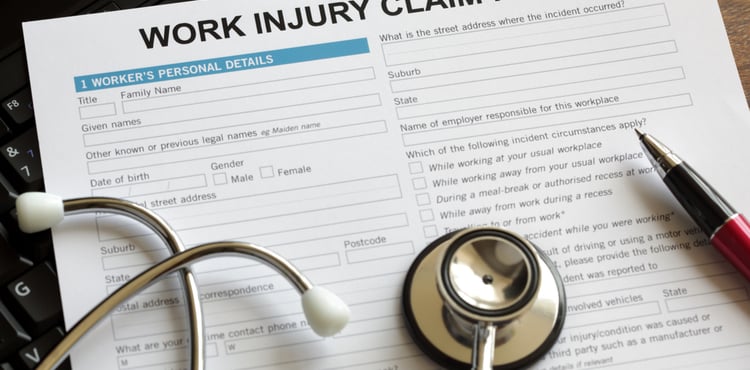To access worker comp audit, the worker and therefore the employer must follow certain steps to make sure the injury is compensable.
When an employee is injured on the work or develops an occupational illness, in most cases it's considered a workers’ compensation injury that's eligible for a claim with your business insurance policy. If the claim is approved, the worker can receive medical coverage, wage replacement, and other benefits following a workers’ comp injury. However, to access these benefits, both the worker and employer must follow certain steps to make sure the injury is compensable.
The process of filing a workers’ comp claim for a workplace injury or illness is often a touch complex because multiple parties are involved: the worker, the employer, the insurance company, the healthcare provider, and therefore the state’s workers’ comp board.

When an employee is injured on the work or develops an occupational illness, in most cases it's considered a workers’ compensation injury that's eligible for a claim with your business insurance policy. If the claim is approved, the worker can receive medical coverage, wage replacement, and other benefits following a workers’ comp injury. However, to access these benefits, both the worker and employer must follow certain steps to make sure the injury is compensable.
The process of filing a workers’ comp claim for a workplace injury or illness is often a touch complex because multiple parties are involved: the worker, the employer, the insurance company, the healthcare provider, and therefore the state’s workers’ comp board.
What is considered a workplace injury?
Most injuries that occur on the work are covered by workers’ comp insurance, including accidents and illnesses caused by exposure to figure activities, materials, and equipment.
As soon as an employee suffers an occupational injury that's covered by workers’ comp insurance, time is of the essence. The employee features a limited number of days to report the incident and collect benefits.
Typically, injured workers should report an occupational injury to the employer as soon because it occurs. If there's a delay in filing the claim, the insurance provider could potentially deny the worker compensation benefits. The delay can also give your carrier the impression that the claim isn’t legitimate.
Workers’ comp generally doesn’t cover:
- Stress or other psychiatric disorders
- Self-inflicted injuries
- Injuries caused by fighting or horseplay
- Injuries that happen when commuting
- Injuries incurred while committing a crime, while under the influence of drugs or alcohol, or while violating company policies
For cumulative work injuries or illnesses, the world gets a touch grayer. For example, say your creative agency employs an internet designer who develops carpal tunnel syndrome over time.
Generally, the clock starts ticking on this claim when:
- The writer took time off work because of the injury.
- The writer knew that the injury was caused by work.
- How to file a workers’ comp claim
To initiate the claims process, an employee must:
- Notify the employer about the work injury or illness (including the date, time, type of injury, and how the injury occurred).
- File a formal workers’ comp claim.
From there, the insurance firm will choose a doctor to conduct an independent checkup. The doctor will report the results to the insurance firm, which uses the report back to create its compensation offer.
The workers’ comp claims process and statute of limitations differ slightly from state to state. Learn more about the workers’ comp laws in states where you are doing business.
When to file a workers’ comp claim
Your employee is eligible for workers’ comp benefits if all of the following statements are true:
- The injured worker is an employee of your small business (not an independent contractor).
- The employer has workers’ comp insurance.
- The employee was hurt as a result of job-related duties.
Workers’ comp statute of limitations
Different states have varying statutes of limitations for filing workers' comp claims. Depending on where your employees are located, they need a selected deadline to file a claim. The deadline could vary supported the sort of injury, as well. For instance, in California, the statute of limitations for filing a workers’ comp claim is one year from the date of the injury.
Employees have deadlines for notifying the employer about the injury. In most cases, the worker must notify the employer within 30 to 45 days of the injury. For example, in Missouri, employees who fail to notify the employer about injuries within 30 days can jeopardize their ability to receive workers’ comp benefits.
Workers can notify employers with a proper letter or email detailing the work injury, or informally, like mentioning wrist pain caused by typing all day. To err on the side of caution, always ask an injured employee to submit a written notification of the incident detailing the character of the ailment and when, how, and where it occurred.
Compare workers’ comp quotes from trusted carriers with Insureon
Complete Insureon’s easy online application today to match quotes for workers' compensation and other sorts of insurance from top-rated U.S. carriers. Once you discover the proper policy for your small business, you'll begin coverage in but 24 hours.

